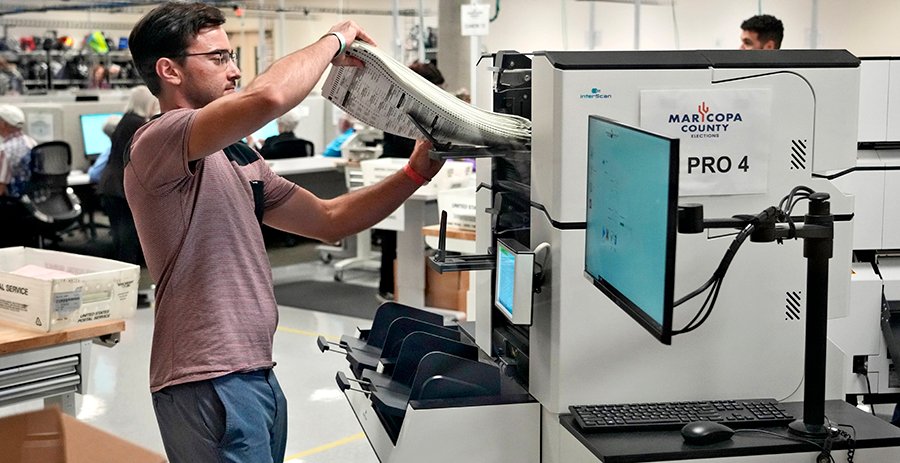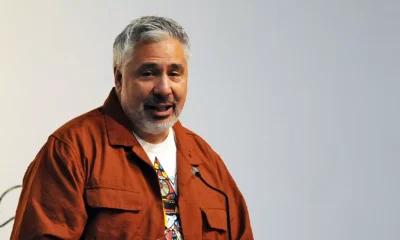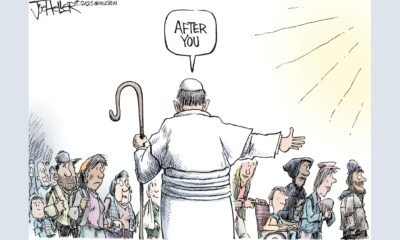election 2014
Republicans Aim for Swift Election Reform, Inspired by Florida Model

Republican leaders in Arizona’s Legislature are prioritizing a swift resolution to election results this session. Their plan aims to replicate Florida’s election system, ensuring nearly all votes are counted by the end of election night.
Senate President Warren Petersen, R-Gilbert, is spearheading this effort with his prefiled bill, SB1011. This legislation targets mail ballots submitted on Election Day, termed “late earlies,” which election officials claim contribute to delays due to the signature verification process.
Support comes from Maricopa County Board of Supervisors Chairman Thomas Galvin, who announced plans for a comprehensive audit of the county’s election system on January 6. He stressed that quicker election results could help mitigate misinformation that undermines trust in the electoral process.
The proposed legislation shifts the deadline for dropping off early ballots to 7 p.m. on the Friday before elections. Additionally, it aims to replace emergency voting centers with expanded early voting on the days leading up to the election.
If enacted, SB1011 would require individuals delivering late early ballots on Election Day to present identification and sign an affidavit before submitting their votes. Galvin expressed hope for bipartisan support but acknowledged Democratic concerns about voter accessibility.
Governor Katie Hobbs’s office issued a statement emphasizing the importance of protecting voters’ rights. While supportive of speeding up vote counting, her administration insists any reforms must maintain election integrity and accessibility for all Arizonans.
A recent poll from Noble Predictive Insights revealed that nearly 52% of respondents are frustrated with the time it takes to finalize election results, highlighting a public demand for quicker outcomes.
There’s a notable unity among Republicans, a critical aspect given past divisions over election trust issues. Political consultant Doug Cole noted a convergence of support around improving the election process.
Rep. Alexander Kolodin, R-Scottsdale, indicated that the House will form an ad hoc committee to examine Florida’s election model. The bill will undergo thorough review in multiple hearings to ensure careful consideration before presenting it to the House.
SB1011 is expected to be a key point of negotiation between Republican leaders and the Governor’s office. Additionally, a controversial proposal from Rep. Rachel Keshel, R-Tucson, seeks to ban vote centers, replacing them with precinct-level voting limited to 1,000 registered voters per precinct.
Keshel’s previous attempt at a similar measure failed in the Senate due to opposition from then-Senator Ken Bennett, who is no longer in office. While the Governor is likely to veto such a bill, Keshel also has a concurrent resolution, HCR2002, intended to let voters decide on the matter directly.
Cole speculated that voters might reject the measure if it reaches the ballot, pointing to a general preference for accessible voting. Voting centers have become increasingly popular in Maricopa County, where average wait times during the general election were around 10 to 11 minutes.


















